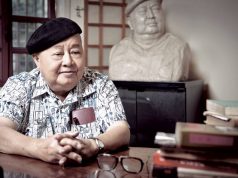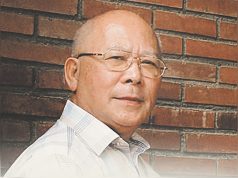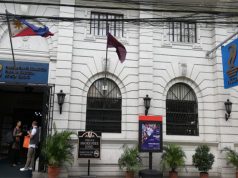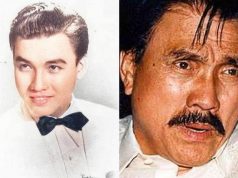
Napoleon Abueva, National Artist for Sculpture and Father of Modern Philippine Sculpture, passed away today, February 16, at the National Kidney and Transplant Institute (NKTI). Abueva was 88 years old.
Among his famous works are Sandugo or Blood Compact shrine in his hometown in Tagbilaran, Bohol; The Transfiguration at the Eternal Garden Memorial Park; Nine Muses at the UP Faculty Center; and the Sunburst at the Peninsula Manila Hotel; the bronze figure of Teodoro M. Kalaw in front of National Library; Murals in Marble at the National Heroes Shrine, Mt. Samat, Bataan; and the 14 Stations of the Cross at the EDSA Shrine, to name a few. Abroad, among his iconic works are Fredesvinda in Fort Canning, Singapore and The Sculpture at the United Nations headquarters in New York City,
Abueva was the youngest National Artist awardee at age 46 and is known to be a versatile sculptor who has utilized quite a range of materials, including hard wood, marble, metal, to cement, just to mention a few.
He received the National Artist Award in 1976. From 1978 to 1989, he was the Dean of the College of Fine Arts at the University of the Philippines. In 1993, he received his honorary doctorate in humanities and was promoted to University Professor. He retired in June 1995 and was given the status of Professor Emeritus in April 2003.
In November 2003 interview with Jose Wendell P. Capili posted on the NCCA website, Abueva was asked by Capili on why some people become great artists while others, unfortunately, do not, Abueva replied that it was that inner drive that set one apart from the rest.
Abueva shared, “The inner drive. A more accomplished artist has inner drive and stamina. Now this is very important. The plight of the artist is somewhat similar to that of the long distance runner. You have to cross the finish line. What counts more in life is the end result. Leonardo da Vinci once said that the greatest tragedy of artists is when theory outstrips performance (laughs). Artists are judged by the end result. Theory is important but concepts must be executed very well for any theory to be realized. The artist must possess the inner drive, passion, and “loneliness” of a long distance runner to go very far.
The National Artist also shared the other factors he thought has contributed to his success as an artist: “Luck has something to do with it. Hard work isn’t enough. The death of my parents maybe. Eventually, I translate emotions and transform these into pieces of wood, marble, clay, and so on.”
Abueva’s remains will lie in state at the University of the Philippines chapel in Diliman, Quezon City.








